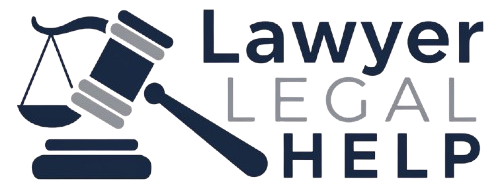An employment lawyer can be a valuable resource for employees facing issues in the workplace. An employee needs an employment lawyer when they encounter legal problems like discrimination, harassment, wrongful termination, or disputes over wages. These situations can be complex, and having professional guidance can make a significant difference.
Employees may not know their rights or the best steps to take when issues arise. An employment lawyer can help clarify these rights and provide strategies for resolution. This support is especially crucial when negotiations or legal actions are involved, as the stakes can be high.
Being informed about when to seek legal help is essential for every employee. Knowing when to contact an attorney can protect their rights and ensure they receive fair treatment at work.
Understanding Employee Rights
Employees have specific rights at work. These rights may vary based on local laws and the type of job. Here are some key rights that every employee should know:
- Right to Fair Pay: Employees are entitled to receive at least the minimum wage. They should be paid for all hours worked.
- Right to a Safe Workplace: Employers must provide a work environment free from hazards. Employees have the right to report unsafe conditions.
- Right to Be Free from Discrimination: Workers should not face discrimination based on race, gender, age, or disability. Equal treatment is a legal requirement.
- Right to Privacy: Employees have a right to privacy in personal matters. Employers should respect personal space and information.
- Right to Family and Medical Leave: Workers may have the right to take time off for family or medical reasons. Certain laws protect this right.
- Right to Unionize: Employees can join or form unions to protect their interests. Employers cannot punish employees for participating in union activities.
Knowing these rights helps employees protect themselves. If any rights are violated, seeking help from an employment lawyer can be beneficial. They can provide guidance and support in resolving issues at work. Understanding these rights is essential for a fair workplace.
Identifying Breaches of Employment Contract
Employees should recognize various breaches of their employment contracts. These breaches can significantly impact their job security and workplace rights. Knowing the key areas of concern can help employees determine if they need legal support.
Unlawful Deductions from Wages
Unlawful deductions occur when an employer takes money from an employee’s pay without proper justification. This includes deductions that are not allowed by law or are not previously agreed upon. Common examples include taking money for broken equipment or cash register shortages.
Employees should check their pay stubs for any unfamiliar deductions. If an employee notices an unjust deduction, they should gather evidence like pay stubs or company policies. Reporting the issue to HR first can sometimes resolve the matter. If not, seeking legal guidance may be necessary to address the breach.
Wrongful Termination
Wrongful termination refers to firing an employee in violation of their employment contract or local laws. This may happen if an employee is let go for unfair reasons, such as discrimination or retaliation for reporting misconduct.
Employees should review their contracts and any relevant laws. Documentation of any conversations leading to termination can provide vital evidence. If termination appears unjustified, consulting an employment lawyer can help clarify rights and options for recourse.
Harassment and Discrimination
Harassment and discrimination in the workplace violate both laws and employment contracts. This includes any unwanted behavior based on race, gender, sexual orientation, or other protected characteristics.
Employees must document incidents, including dates, times, and details. Reporting harassment to a supervisor or HR is crucial when it happens. If the behavior continues or the employer fails to act, seeking legal advice is important. Employees have rights and should know how to protect themselves in these situations.
Retaliation and Whistleblower Protection
Retaliation occurs when an employee faces negative actions for reporting illegal or unethical behavior. This can include demotion, harassment, or being fired. Whistleblower protection laws exist to prevent these actions against those who speak up.
Employees should keep records of any incidents of retaliation. This documentation can be helpful if legal action becomes necessary. Reporting the issue to HR or relevant authorities is a good first step. If retaliation continues, seeking advice from an employment lawyer can help employees understand their rights and potential actions.

